Search
Did you mean: Romani?
Search Results

Article
Roman Daily Life
From the early days of the Roman Republic through the volatile reigns of such ignoble emperors as Caligula, Nero, and Commodus, the Roman Empire continued to expand, stretching its borders to encompass the entire Mediterranean Sea as well...

Article
Trade in the Roman World
Regional, inter-regional and international trade was a common feature of the Roman world. A mix of state control and a free market approach ensured goods produced in one location could be exported far and wide. Cereals, wine and olive oil...
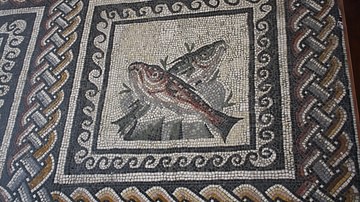
Article
Roman Mosaics
Roman mosaics were a common feature of private homes and public buildings across the empire from Africa to Antioch. Not only are mosaics beautiful works of art in themselves but they are also an invaluable record of such everyday items as...

Article
Views of the Afterlife in Roman Tombstone Inscriptions
Ancient views of the afterlife are reflected in literature, tomb inscriptions, and grave goods. Then, as now, a belief in another stage of existence after death was a shared belief by all ancient societies. Initially, the Greco-Roman Hades...
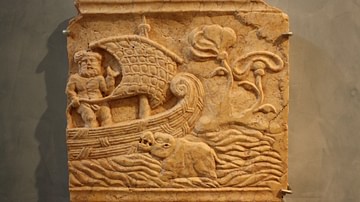
Article
Roman Shipbuilding & Navigation
Unlike today, where shipbuilding is based on science and where ships are built using computers and sophisticated tools, shipbuilding in ancient Rome was more of an art relying on rules of thumb, inherited techniques and personal experience...
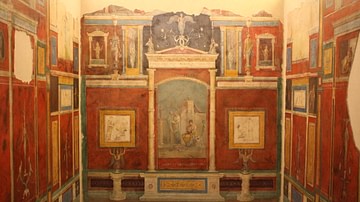
Article
Roman Wall Painting
The interiors of Roman buildings of all description were very frequently sumptuously decorated using bold colours and designs. Wall paintings, fresco and the use of stucco to create relief effects were all commonly used by the 1st century...
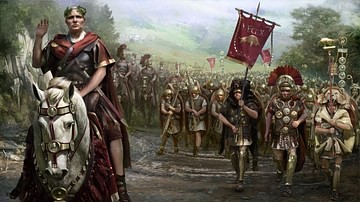
Collection
Ancient Roman Warfare
With a huge reserve of resources in men and equipment and a culture geared for warfare, the Romans were relentless in expanding their borders and putting their neighbours to the sword. The Roman army, with its well-trained, well-equipped...
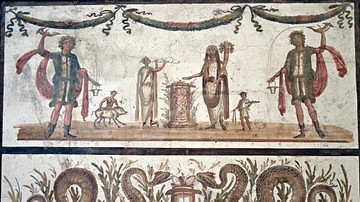
Article
Roman Household Spirits: Manes, Panes and Lares
To the ancient Romans, everything was imbued with a divine spirit (numen, plural: numina) which gave it life. Even supposedly inanimate objects like rocks and trees possessed a numen, a belief which no doubt grew out of the early religious...

Article
Roman Students in Athens
Training in oratory was a crucial part of Roman education; it was associated with a young boy's transition into adult life. As Athens was considered the intellectual centre of the eastern Mediterranean, many students undertook long journeys...

Article
The Roman Toga
The toga was an item of clothing worn by men who were citizens of Rome. The toga consisted of a single length of wool cloth cut in a semicircle and wrapped around the body of the wearer without any fastenings. The Roman toga was a clearly...